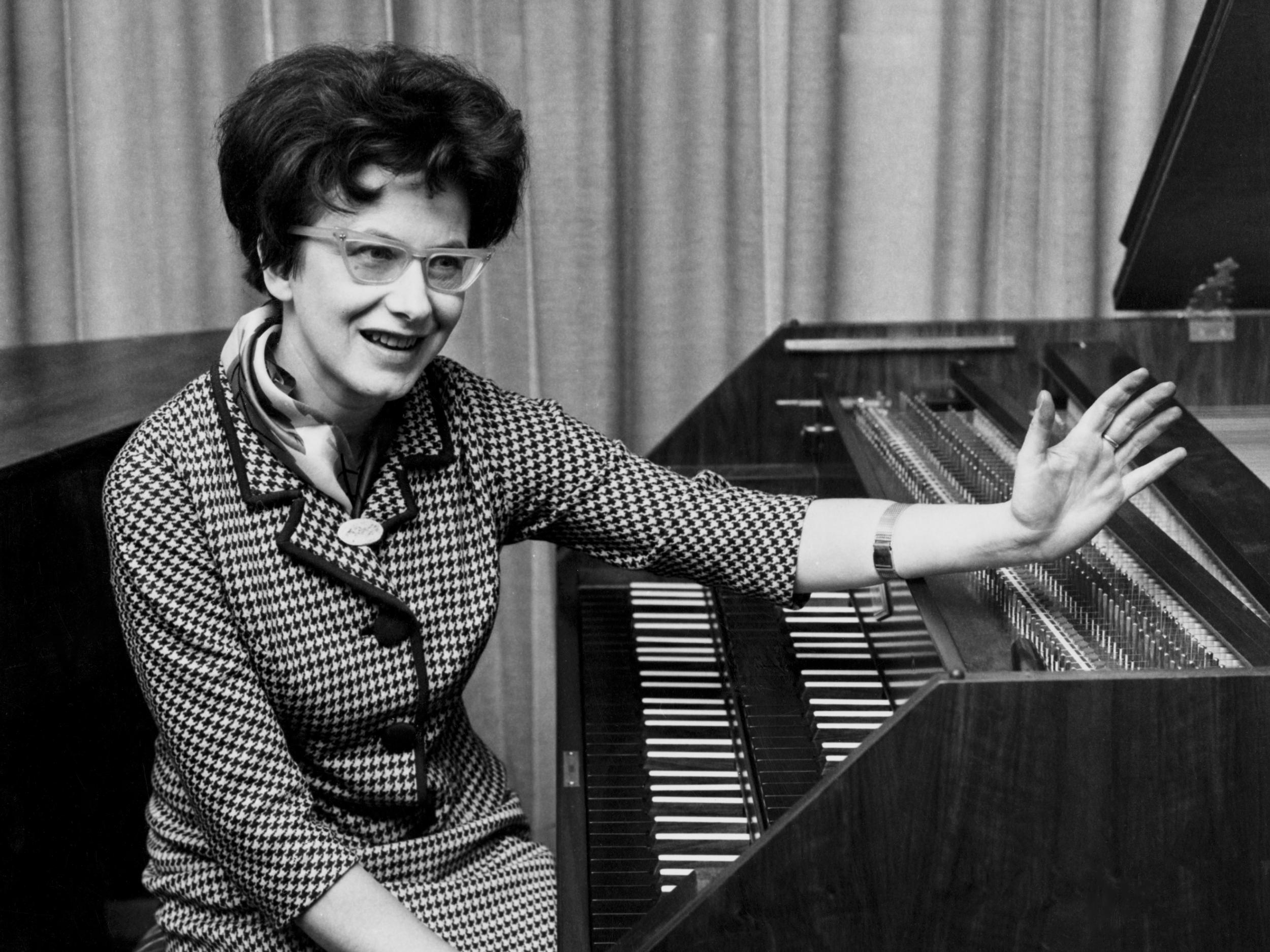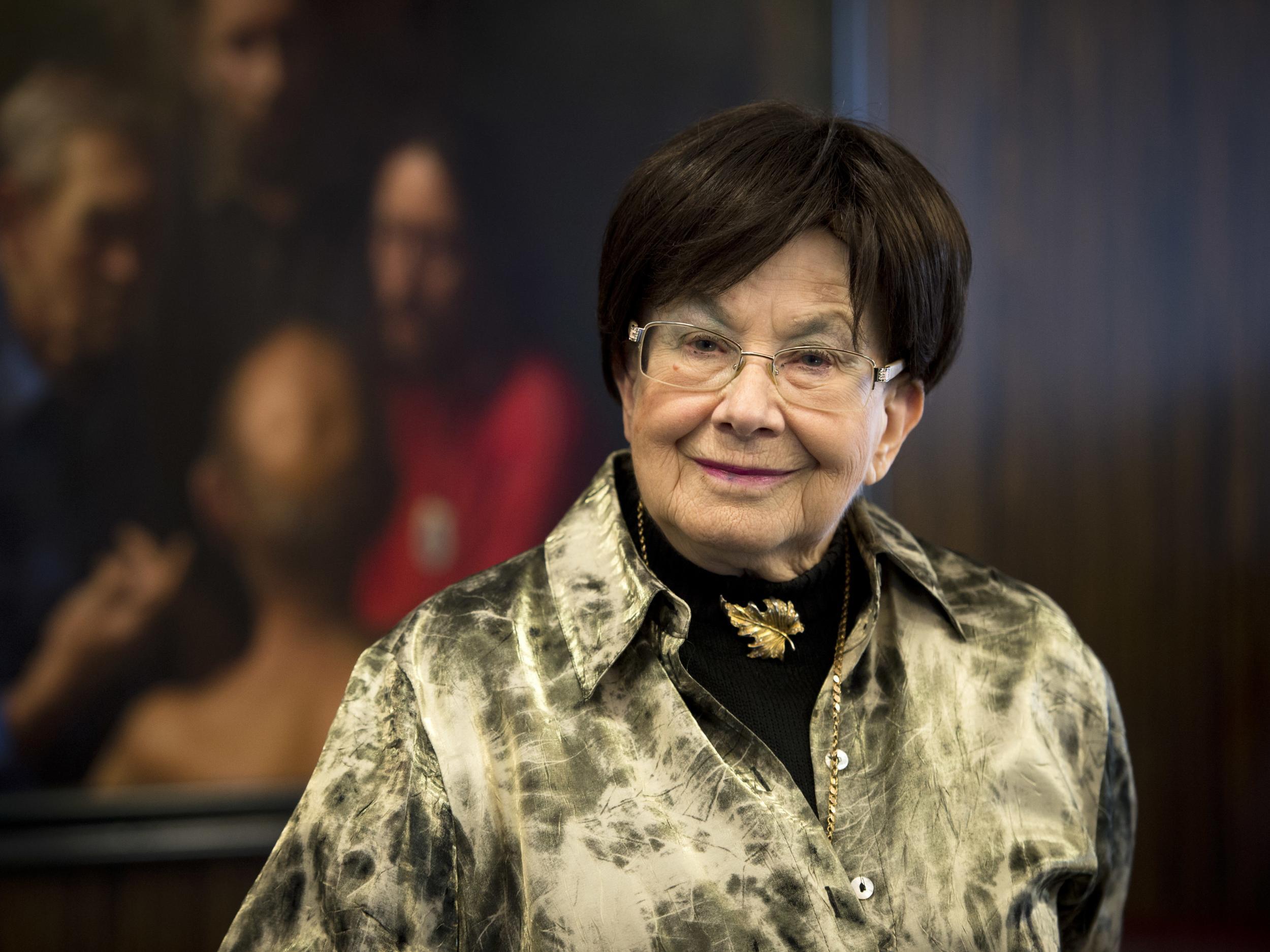Zuzana Ruzickova: Harpsichordist virtuoso renowned for her love of Bach
A Holocaust survivor, she rediscovered life's beauty in the music of the German composer

Your support helps us to tell the story
From reproductive rights to climate change to Big Tech, The Independent is on the ground when the story is developing. Whether it's investigating the financials of Elon Musk's pro-Trump PAC or producing our latest documentary, 'The A Word', which shines a light on the American women fighting for reproductive rights, we know how important it is to parse out the facts from the messaging.
At such a critical moment in US history, we need reporters on the ground. Your donation allows us to keep sending journalists to speak to both sides of the story.
The Independent is trusted by Americans across the entire political spectrum. And unlike many other quality news outlets, we choose not to lock Americans out of our reporting and analysis with paywalls. We believe quality journalism should be available to everyone, paid for by those who can afford it.
Your support makes all the difference.Zuzana Ruzickova, who has died aged 90, was a Czech survivor of the Nazi concentration camps who became one of the world’s premier harpsichordists.
Ruzickova achieved international renown as the first soloist in history to record Bach’s complete keyboard works. The collection, originally made for the French label Erato from 1965 to 1974, filled 35 records and was reissued last year. A documentary, Zuzana: Music Is Life, directed by the Bethesda, Maryland-based Harriet Gordon Getzels and Peter Getzels, was released earlier this year.
Ruzickova trained initially as a pianist but became best known as a virtuoso of the harpsichord, a principal instrument for which Bach composed, and one whose sound she helped revive in modern concert halls. Her devotion to the 18th century German composer was deep and almost primal. She said she had loved his music since she was an eight year-old in pre-war Czechoslovakia and credited Bach’s restrained intensity with helping her endure the horrors and memory of the Holocaust.
In the Baroque perfection of his preludes, fugues, toccatas and fantasias, she said, one could find the order that is not always visible in the melee of human life. “I needed Bach,” Ruzickova told BBC Music Magazine. “Unlike Beethoven, who shakes his fist at the heavens, Bach could help me after everything I’d been through. His music is above human suffering.”
Zuzana Ruzickova was born in 1927 in the Czech city of Pilsen. Her parents, who were Jewish, ran a general store and encouraged her love of music. She received her first piano lessons as a gift when she recovered from a childhood bout of tuberculosis.
Ruzickova was 12 when the Germans invaded and occupied Czechoslovakia. She and her parents were interned in Terezin, the concentration camp-ghetto located outside of Prague – also known as Theresienstadt – where her father perished. From there, she and her mother were deported to Auschwitz, the Nazi death camp in occupied Poland. Narrowly avoiding the gas chamber, they were selected for slave labour in Hamburg before ultimately being liberated by the British from Bergen-Belsen in Germany.
Music, Ruzickova said, was her salvation. On the cattle wagon en route to Auschwitz, she scribbled several bars from Bach’s “English Suite No 5 in E minor” on a piece of paper. ”I wanted to have a piece of Bach with me as a sort of talisman because I didn’t know what was awaiting us,“ she told the BBC. In the camps, she sang passages from operas to fellow inmates as a means of psychological escape.

Upon her return to Czechoslovakia after the war, Ruzickova attempted to resume her musical studies, but slave labour had badly injured her hands. Her physicals wounds, combined with her emotional ones and her lost years of study, led teachers to tell her that she could no longer hope for a career in music. But she persisted and received a scholarship to the Prague music academy in 1948, the year Communists came to power in Czechoslovakia. Because she refused to join the Communist Party, the academy declined to award her the doctorate that her cousin said she had earned.
At the academy she met Viktor Kalabis, a Czech composer, whom she married in 1952. Poverty-stricken, they lived for a time with her mother in a small apartment and slept under the piano.
As Ruzickova’s musical talent blossomed, the Communist government allowed her to travel for concerts but collected a large portion of the foreign currency she received in payment. She said her husband persuaded her to perform in Germany – to show that Hitler had not succeeded in extinguishing German or European culture – where she won the ARD music competition in 1956. The invitation from the record label Erato to record Bach’s keyboard compositions then brought her to the attention of classical music enthusiasts around the world.
“There’s a sense of rightness to Zuzana Ruzickova’s Bach that transcends fads and fashions and the deadening impact of scholarly dogma,” music writer Rob Cowan observed in a 2017 review for Gramophone. “Some might find it just a mite too stately, its persistent propensity for shifting colours and registrations intrusive. ‘In your face’ is the appropriate modern phrase, I suppose, but there isn’t a musical face in existence I’d rather confront than Bach’s and I thank Zuzana Ruzickova for this sublime close encounter.”
Ruzickova also was widely noted as an interpreter of Domenico Scarlatti, an Italian contemporary of Bach’s. After the Velvet Revolution ended Communist rule in Czechoslovakia in 1989, she received a professorship long denied to her and performed for the first time in the United States. She also lectured on her experiences in the Holocaust, her cousin said.
Ruzickova’s husband died in 2006, two years after she retired from the stage. She had no immediate survivors.
“Bach is very soothing,“ she told the BBC last year. “You always feel in his music that God is present somehow. And that, of course, helps.”
Zuzana Ruzickova, harpsichordist, born 14 January 1927, died 27 September 2017
© The Washington Post
Join our commenting forum
Join thought-provoking conversations, follow other Independent readers and see their replies
Comments